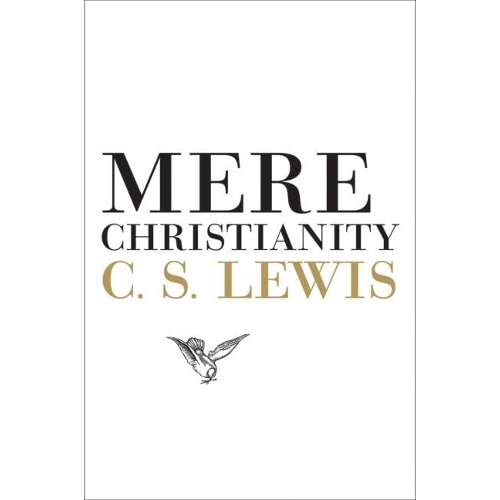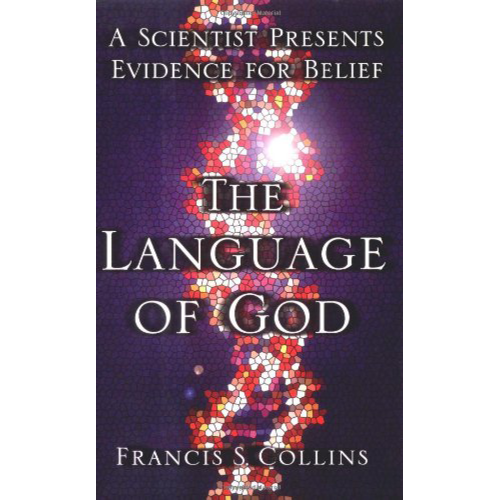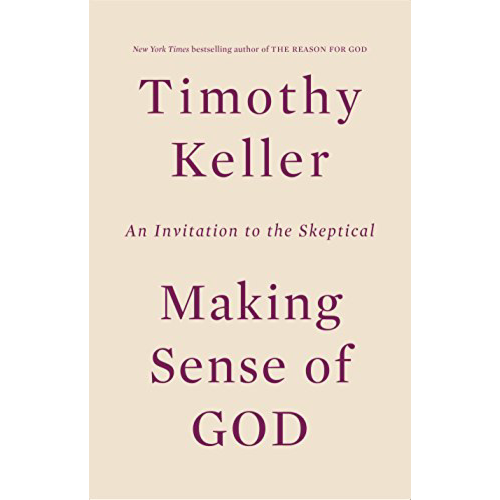As the age-old debate between science and religion continues to spark curiosity and controversies, many scholars have explored the intricate relationship between these two spheres.
While some perceive an unbridgeable gap between the factual world of science and the faith-based realm of Christianity, others argue that they are not mutually exclusive. It is truly a fascinating intellectual pursuit to delve into the works of brilliant minds who strive to reconcile these seemingly opposing perspectives.
We picked our favorites and have made you an exclusive list of the best books on science and Christianity, spanning various disciplines such as cosmology, quantum physics, evolutionary biology, and theology.
These exceptional works offer thought-provoking insights and a powerful testament to the harmonious potential of scientific and religious understanding. So, whether you are an avid seeker of knowledge, a skeptic, a believer, or just an inquisitive reader, prepare to expand your horizons as we embark on this enlightening journey into the captivating intersection of science and Christianity.
How We Choose
There are many great books on Christianity and science, but they can be hard to find. The best source for reviews of Christian books on science is the website Book Review cafe. We've also put together a list of some of our favorite titles below.
Mere Christianity
In his book "Mere Christianity," C.S. Lewis provides an in-depth look into the fundamentals of faith and why they make sense. Through his writing, readers can gain a deeper understanding of what it means to believe in God and why doing so makes sense.
One of the key reasons why I find Lewis's book helpful is because he presents arguments from both sides — those who claim that religion is unnecessary and those who claim that it is necessary — making sure to present both sides in a fair manner. He also does a great job at explaining why belief in God makes sense, offering rational explanations for things such as miracles and the existence of evil without coming across as condescending or disrespectful toward non-believers.
If you are looking for a book that will help you understand the rationale behind believing in God, then this is definitely the right choice for you!
Finding God in the Waves: How I Lost My Faith and Found It Again Through Science
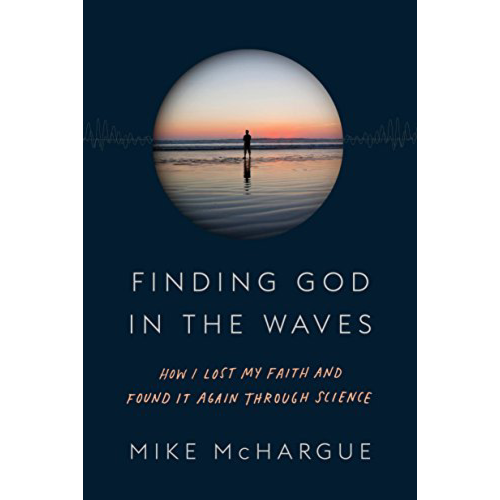
Finding God in the Waves: How I Lost My Faith and Found It Again Through Science
In his new book, "Finding God in the Waves", Mike McHargue shares his personal story of how he came to embrace a scientific understanding of God.
Drawing on his background as an evangelical Christian, McHargue presents a compelling argument for why science can be reconciled with spirituality. He explains that our current understanding of the universe is compatible with the existence of a creator deity, and he provides numerous examples from modern science that support this view.
He argues that our current understanding of the universe is compatible with the existence of a creator deity, and he provides numerous examples from modern science that support this view. Drawing on his background as an evangelical Christian, McHargue presents a compelling argument for why science can be reconciled with spirituality. He explains that our current understanding of the universe is compatible with the existence of a creator deity, and he provides numerous examples from modern science that support this view.
Getting Religion: Faith, Culture, and Politics from the Age of Eisenhower to the Era of Obama
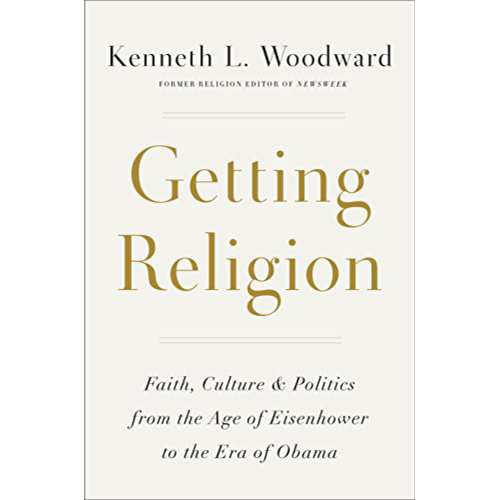
Getting Religion: Faith, Culture, and Politics from the Age of Eisenhower to the Era of Obama
Ken Woodward's Getting Religion is a must-read for anyone interested in the history of religion and society in the United States. The book offers an insightful look at how American culture has changed over the past seven decades, from the civil rights movement to the rise of evangelical Christianity.
The author takes a unique approach by blending memoir with copious research and shrewd historical analysis. Through his decades-long career as a journalist, Ken Woodward has amassed an impressive amount of knowledge about religion and its impact on society. His writing style is engaging and easy to follow, making it an ideal choice for those looking for a non-academic perspective on religious history.
In addition to being informative, Getting Religion is also thought-provoking and leavened by wit. It is a valuable resource for those seeking to understand how religion came to be such a contentious element in 21st-century public life.
The Language of God: A Scientist Presents Evidence for Belief
The book "The God Theory" by Francis Collins presents a scientific argument for the existence of God, revealing how science can support faith by citing the areas of nature that can and cannot be fully explained by Darwinian evolution.
The author argues that there are certain aspects of our world that cannot be fully explained by natural processes alone, such as the complex design found in living organisms or the order observed in the universe. He also cites examples from history, such as when Copernicus disproved the idea that Earth was at the center of our solar system and Galileo's observations about moons orbiting other planets, which were previously thought to be illusions.
By presenting evidence from both science and religion, Collins hopes to show people a way to reconcile their beliefs while still embracing scientific findings. This book is an excellent resource for anyone looking to gain a deeper understanding of why they believe what they do without having to blindly accept everything they've been taught.
Making Sense of God: An Invitation to the Skeptical
In his latest book, Making Sense of God, Timothy Keller delves into the reasons why Christianity is more relevant now than ever.
The reason for this assertion stems from the fact that human beings cannot live without meaning, satisfaction, freedom, identity, justice, and hope. As such, there are no other religions that can provide these essential needs. However, while it may be true that there are no other religions that can provide these needs, many people still choose to follow non-religious paths in order to find fulfillment and purpose in their lives.
This is why Keller believes it's important to understand the reasoning behind why people choose not to follow a religious path. Through his writing style and use of analogies, he makes the case for why Christianity is a better choice than any other option out there.
The Man Who Wasn't There: Investigations into the Strange New Science of the Self
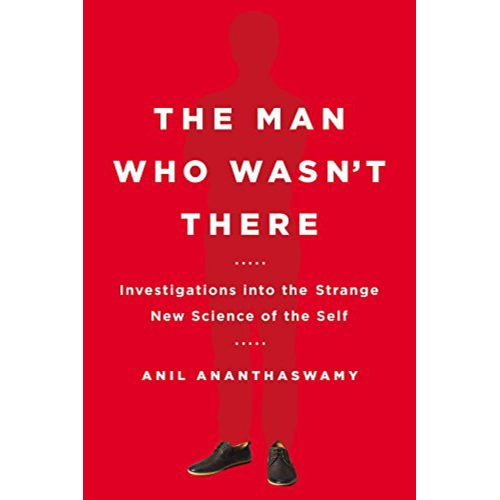
The Man Who Wasn't There: Investigations into the Strange New Science of the Self
"The Selfish Gene" by Richard Dawkins is a classic work of science writing that has stood the test of time. It was first published in 1976 and has remained a popular choice for readers looking to gain insight into evolutionary theory.
Dawkins' book presents the ideas of Darwinian evolution through the lens of gene replication. The book is written in a highly accessible manner, making complex scientific concepts easy to understand. The text is full of examples and metaphors that make it fun to read as well as informative. This makes it an ideal choice for those new to the world of evolutionary theory or those who have never heard of Darwin before.
It's important to note that this book does not offer a comprehensive explanation of all aspects of evolutionary theory, however, it does cover most key points in sufficient detail for readers to gain a basic understanding.
Best Books On Christianity And Science FAQs
Will A Book On Science And Christianity Help Me Understand The Bible?
It can certainly help, but nothing beats the real thing. If you can read Genesis and Psalms with concordance in hand, that will mean more than any book or class on science and Christianity. That said, finding your way through the books of The Bible is not easy. You need a good edition (hardcover or leather-bound), preferably one that includes a list of books and chapters so you have some context for what you're reading. Then there's vocabulary to deal with – words like “concubine” and “begat” are not found in modern dictionaries. Finally, if you don't know much about the history of Israel or early Judaism… well then this whole book business might be overkill anyway! A course at your local church may be just the ticket here; many churches offer noncredit adult education courses on various aspects of scripture which could serve as a helpful primer before diving into Genesis chapter by chapter. No matter how you approach it, make sure to set aside time every day to study – even 15 minutes daily will give you something worthwhile at the end of three months' time if you stick with it consistently!
Should I Have Books On Science And Christianity In My Home?
The books below will give you a basic understanding of the debate. They won't necessarily take sides, but they'll help you understand what your family members are talking about:
The Science of Christianity by Simon Chan is a short book that explains how modern science can support Christian beliefs and insists that Christians should not be intimidated by science or atheists. This book gives an overview of the history and current state of the science vs. religion debate. If you're interested in finding out more about this topic, start with this book!
by Simon Chan is a short book that explains how modern science can support Christian beliefs and insists that Christians should not be intimidated by science or atheists. This book gives an overview of the history and current state of the science vs. religion debate. If you're interested in finding out more about this topic, start with this book! Evolution Versus Christianity by John D. Morris argues that evolution does not contradict Christianity because God set up natural laws through evolution to create human beings as he desired them to be created; however, some branches of Christianity believe an allegorical interpretation (as opposed to literal) is necessary when reading Genesis chapters 1-11 in order to reconcile scientific fact with religious belief on creationism (the belief humans were created directly by God rather than evolved from earlier life forms).
For example, Ken Ham's The Genesis Flood addresses scientific assertions we now know to be incorrect while still agreeing with religious interpretation based on allegory instead of translation literally; however, many other branches do not agree on these points at all either way even though most still believe Genesis conveys God's message for humanity no matter which method is used for interpreting it – whether it includes literal translations or spiritual allegories.
Are Books On Science And Christianity Suitable For Kids?
There are many wonderful books on science and Christianity that are suitable for children of all ages. Here is a list of some excellent titles in this category: Science and Health With Key to the Scriptures by Mary Baker Eddy, The Case For Christ by Lee Strobel, and Evidence That Demands A Verdict by Josh McDowell.
Conclusion
It is clear that there is a debate between science and Christianity, but it does not have to be an either/or situation. Both can coexist in harmony if we are willing to approach the topic with open minds and hearts. Whether you choose to read books on the subject or take courses at your local church, make sure to set aside some time every day for study so you can gain knowledge of both topics. Furthermore, there are many wonderful books suitable for children which will help them understand this complex issue better. By educating ourselves about the Christian faith, contemporary science, biblical interpretation, and religious beliefs we can bridge any gap between these two important fields of thought and view them as complementary rather than opposing forces.
We have seen that Christian theology and science are not necessarily opposed to each other. By understanding the history of both fields, we can appreciate how they support one another in many ways. We have also looked at some excellent books on this topic which demonstrate a variety of perspectives - from scientific evidence to religious interpretations.
And educating ourselves with these resources, we can develop an appreciation for the natural world around us as well as our spiritual beliefs. With knowledge comes wisdom; so it is important to remember that when approaching any debate between faith and reason, there should always be room for dialogue rather than division. With open minds and hearts, we can use Christian theology and science together to explore new possibilities about life's mysteries!



